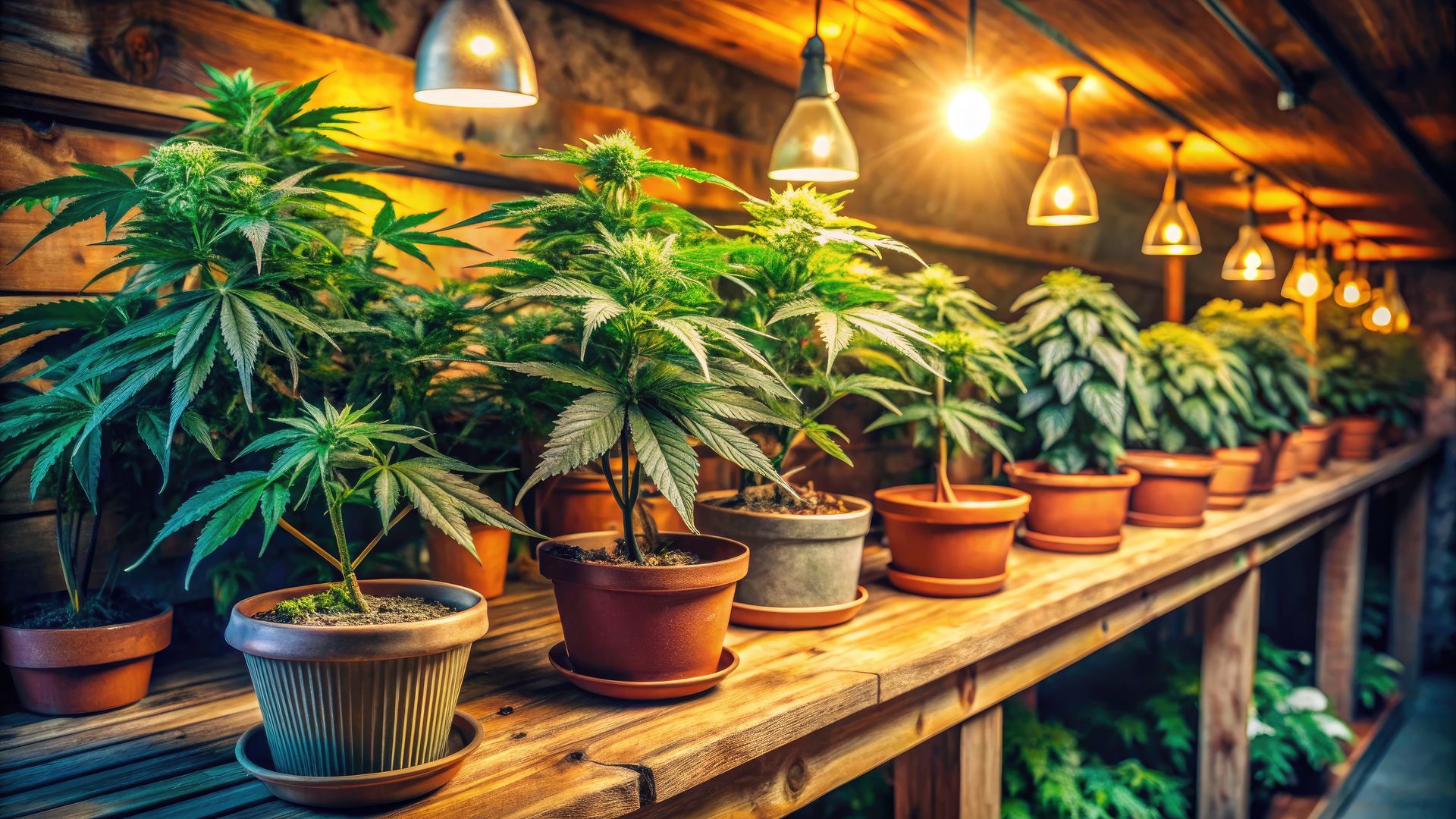Busted for a Grow House in Phoenix? What Happens Next?

Since Arizona legalized recreational marijuana, adults have been legally allowed to cultivate marijuana at home under strict conditions. Growing more than the law allows, cultivating other illegal substances, or allowing minors to participate in growing activities can result in potentially serious charges.
How You’ll Likely Find Out You’re Being Investigated for Drug Cultivation
Most people don’t get a friendly warning when they're under suspicion. In fact, by the time police are knocking on your door or more likely, serving a search warrant, they’ve already gathered evidence and built a case. Investigations into illegal grow operations often start with:
- Tips from neighbors (due to smell or suspicious activity)
- Unusually high electricity usage
- Visible signs like covered windows or excessive ventilation
- Heat signatures from thermal imaging (can only be legally used with a warrant)
- Informants or undercover operations
Once law enforcement suspects illegal cultivation, they’ll seek a search warrant. They must present probable cause to a judge, and if granted, they can forcibly enter your property to search for evidence. If they find plants exceeding Arizona’s legal limit, cultivation of other controlled substances, or signs of intent to distribute (like scales, packaging materials or large amounts of cash), you can expect to be arrested on the spot.
Arrest for Cultivation and Bail
If you're arrested during a raid, you'll likely be taken to jail and booked. Depending on the charges and whether you have a criminal record, a judge may:
- Set bail (which could be tens of thousands of dollars or more for serious felonies)
- Deny bail if you're considered a flight risk or a danger to the community
- Release you on your own recognizance for less severe charges
If bail is set, you’ll need to post it through cash, property, or a bond company to get released while awaiting trial. It’s wise to contact a criminal defense attorney immediately, even before posting bail if possible.
What Happens Next?
1. Initial Appearance and Charges
Within 24 hours of your arrest, you’ll appear before a judge who will:
- Inform you of the charges
- Review bail
- Schedule your next court date
- Weekends and holidays do not pause the 24-hour clock. Even if you're arrested late
Friday night, your initial appearance still must happen by late Saturday night, otherwise, you must be released.
2. Arraignment
At the arraignment, you enter a plea: guilty, not guilty, or no contest. Attorneys usually advise their clients to plead not guilty at this stage to allow time to review evidence.
3. Pre-Trial Hearings and Discovery
Your attorney will receive the evidence (known as discovery) and may file motions to suppress evidence if your rights were violated, such as an illegal search or lack of probable cause for the warrant. This step can take weeks to months, depending on case complexity.
4. Plea Bargain or Trial
Many cultivation cases are resolved through a plea bargain, which is a deal where you plead guilty to lesser charges in exchange for a lighter sentence. If you choose to go to trial, your attorney will defend your case before a judge or jury.
Arizona Marijuana Cultivation Laws
Since the passage of Proposition 207 in 2020, adults 21 and older can legally grow marijuana in Arizona as long as they adhere to these restrictions:
- No more than 6 plants per adult in a household with a maximum of 12 per household (with 2 or more adults)
- Must be grown in a locked, enclosed area not visible to the public
- No selling or trading marijuana for anything of value without a Marijuana Establishment license
- No underage involvement in cultivation
Exceeding these limits or failing to follow proper storage or security procedures turns a legal setup into a criminal operation. Cultivating other substances (like mushrooms, peyote, or opium poppies) is always illegal and charged as a felony.
Penalties for Drug Cultivation in Arizona
- Illegal Marijuana Cultivation (ARS 13-3405):
Felony charges for growing beyond limits can lead to prison time, especially if law enforcement finds evidence of distribution.
- Cultivation of Dangerous Drugs (ARS 13-3407):
Dangerous drugs
Include hallucinogenic mushrooms and other non-marijuana substances. This is a Class 3 felony, punishable by 5 to 15 years for first-time offenders.
- Aggravating Factors: If your grow house is near a school, involves minors, or is especially large, you could face harsher sentencing.
Building a Defense Against Marijuana Cultivation Charges
A skilled criminal defense attorney with experience handling drug cultivation, manufacturing, distribution, or trafficking cases will typically look at:
- How the warrant was obtained (was it legal?)
- Whether your rights were violated during the search
- Compliance with Proposition 207—were you actually over the limit?
- Whether there was evidence of intent to distribute or if the evidence can be challenged
If key evidence was gathered improperly, it can be thrown out, weakening the prosecution’s case. And if you were growing within legal limits, the plant count was miscalculated, or there’s evidence of self-seeding or accidental germination, those facts can change the outcome significantly. Intent matters under Arizona law, and unintentional growth can sometimes be an effective defense.
Arrested for a Grow House in Phoenix? Get Help Now.
Facing drug cultivation charges can be overwhelming, but you don’t have to go through it alone. Arizona Board-Certified Criminal Defense Attorney Michael Alarid III knows how law enforcement builds these cases and how to challenge them.
If you’ve been arrested or believe you’re under investigation for a grow house in Phoenix, call (602) 818-3110 for a free case evaluation today. The sooner you get legal representation, the stronger your defense will be.



